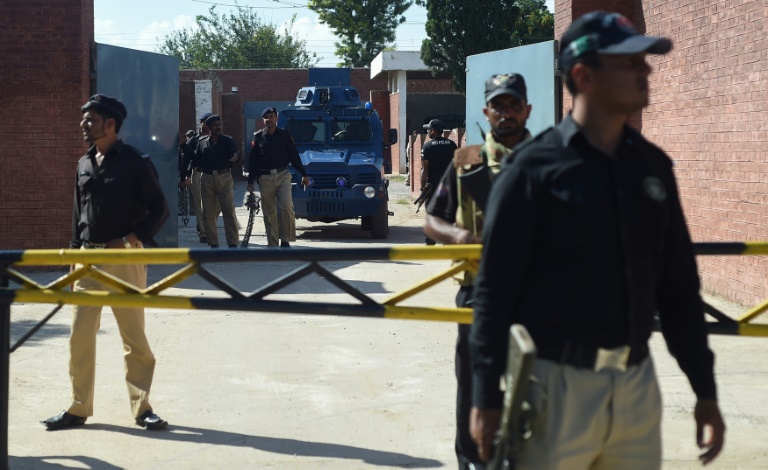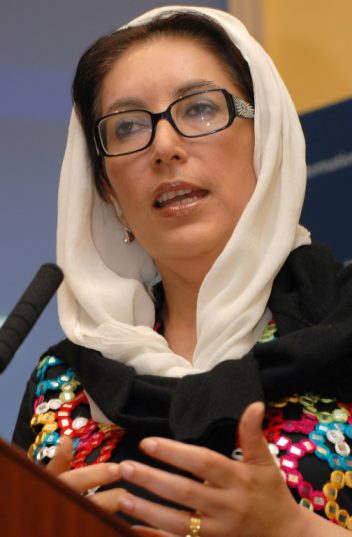How the residential property market is impacting middle-class families
The verdicts are the first to be issued since Bhutto, the first female prime minister of a Muslim country, was killed in a gun and suicide bomb attack nearly a decade ago, sparking street violence and plunging Pakistan into months of political turmoil.
The judge also found two police officers guilty of “mishandling the crime scene”, the court official said, making them the only people to have been convicted over the assassination.
Former president and military ruler Musharraf is alleged to have been part of a broad conspiracy to have his political rival killed before elections. He has denied the allegation.
He was charged with murder, criminal conspiracy for murder, and facilitation for murder in 2013, in an unprecedented move against an ex-army chief, challenging beliefs the military is immune from prosecution.
But he has been in self-imposed exile in Dubai ever since a travel ban was lifted three years later.
The anti-terrorism court in Rawalpindi ruled he had “absconded”, a court official told reporters outside, saying it had also ordered the confiscation of his property.
The judge also acquitted five men who had been accused of being Taliban militants involved in the conspiracy to kill Bhutto on December 27, 2007.
They were set to walk free nearly 10 years after they were first arrested, though a defence lawyer said it was not yet clear when they would be released.
“My clients were held for nine years and eight months for nothing,” Malik Jawad Khalid, the lawyer for three of the men — Rafaqat Hussain, Husnain Gul and Sher Zaman — told AFP.
“This time in their lives cannot be brought back, but we thank Allah that they have been declared innocent.”
If the acquittals are challenged, he vowed, “my clients will again prove themselves innocent in the higher courts”.

A Pakistani anti-terrorism court official arrives in an armored vehicle at Adyala Prison in Rawalpindi on August 31, 2017, for the announcment of the verdict in ex-prime minister Benazir Bhutto’s murder trial
Bhutto’s son Bilawal, who now heads her Pakistan Peoples Party (PPP), tweeted that the decision was “disappointing & unacceptable”, and the release of “terrorists” was “not only unjust but dangerous”. He vowed the party would explore legal options.
“There will be no justice till Pervez Musharraf answers for his crimes!” Bhutto’s daughter Aseefa Zardari tweeted moments after the court’s announcement.
– ‘Mystery remains’ –
Senior police officer Khurram Shahzad was accused of hosing down the crime scene less than two hours after the killing — an act the United Nations described in a report as “fundamentally inconsistent with Pakistani police practice”.
Then-Rawalpindi police chief Saud Aziz was accused of both giving Shahzad permission to hose down the scene, and of refusing multiple times to allow an autopsy of Bhutto’s body to go ahead.
They were each sentenced to 10 years imprisonment on one count and seven on another, with the sentences to run concurrently, and fined 500,000 rupees ($4,700), according to a court order.
Musharraf’s government blamed the assassination on Pakistani Taliban chief Baitullah Mehsud, who denied any involvement. He was killed in a US drone attack in 2009.
In 2010, the UN report accused Musharraf’s government of failing to give Bhutto adequate protection and said her death could have been prevented.

Benazir Bhutto, the first female prime minister of a Muslim country, was killed in a gun and suicide bomb attack nearly a decade ago, sparking street violence and plunging Pakistan into months of political turmoil
The unanswered questions surrounding the case prompted a swirl of conspiracy theories.
Rashid A. Rizvi, president of the Supreme Court Bar Association, alluded to them Thursday when he noted that the acquittals were “as much a conspiracy as her murder was”.
The judgement, political analyst Hasan Askari told AFP, was unlikely to offer any clarity as it “has failed to answer the question of who actually murdered her”.
“Were they Taliban or Musharraf,” he said, adding the prosecution “could not provide any evidence … So the mystery remains unsolved”.
Musharraf is facing a string of cases connected to his 1999-2008 rule, and Pakistani courts have ordered his property confiscated on previous occasions.
He was acquitted last year in the 2006 killing of a Baloch militant leader, but four cases remain against him: one accusing him of treason for imposing emergency rule, one alleging the unlawful dismissal of judges, one over a deadly raid on the Red Mosque in Islamabad in 2007, and Bhutto’s killing.
Access to the top content, vouchers and other member only benefits